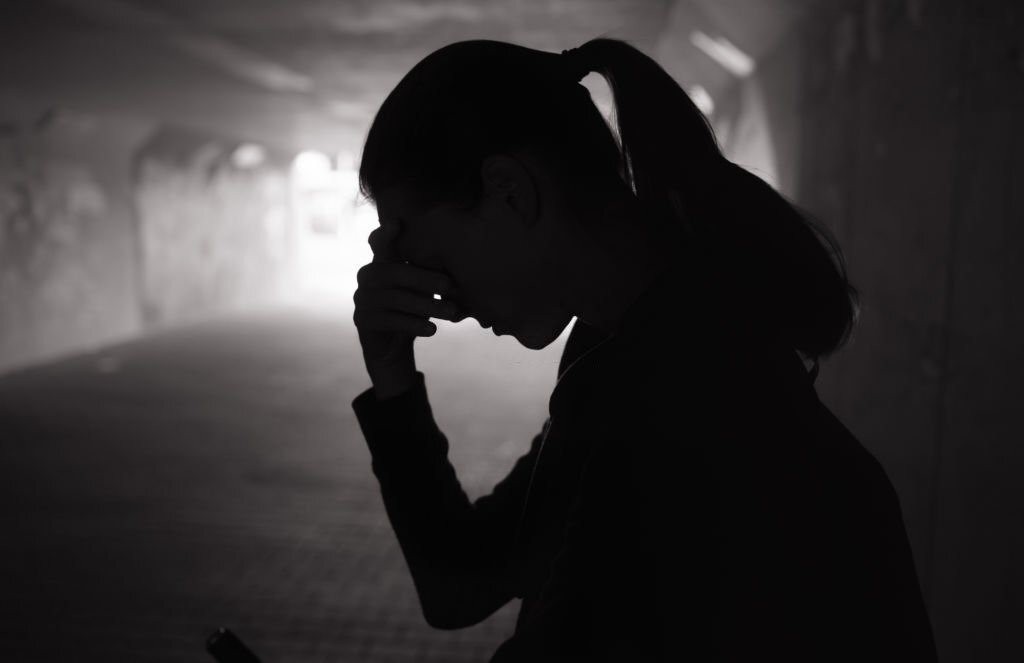There are different types of abuses women experience in life. Most women have been victims of more than one type of abuse in their lifetime.
WHAT IS ABUSE?
Abuse could simply be defined as the improper usage or treatment of a thing or a person in this case women, often to unfairly or improperly gain benefit. Abuse is when someone hurts or causes emotional stress to someone else. Abuse is also defined as the Kantian notion of the wrongness of using another human being as means to an end rather than as ends in themselves.
Abuse may affect women’s self-esteem, mood, focus, quality of sleep, or interest in activities they once enjoyed. The effects of abuse on women can affect every aspect of their lives and the effects often last after the abuse stops. The impact of abuse can be different for every woman because a person’s response to abuse is based on many things, like their age at the time of the abuse or how much support they have in their life.
WHAT ARE THE TYPES OF ABUSE?
There are quite a number of abuses women suffer, and more are being discovered everyday as the human race evolves. Physical, Sexual, and Emotional abuse are some of the most known types of abuse, and this article will focus on what the aforementioned types of abuse do to women.
PHYSICAL ABUSE
Physical abuse is an act where one person uses their body in order to inflict intentional harm or injury upon another person.
- Punching
- Kicking
- Shaking
- Suffocating
- Pinching
- Biting
- Scratching
- Scalding or burning someone
Physical abuse can have lasting effects on the physical and mental health of women. Physical abuse can cause many chronic (long-lasting) health problems, including heart problems, high blood pressure, and digestive problems. Women who are victims of physical abuse at one point or the other in their lives are also more likely to develop depression, anxiety, or eating disorders.
Also, women who are physically abused may also misuse alcohol or drugs as a way to cope.
EMOTIONAL & VERBAL ABUSE
Emotional abuse includes non-physical behaviours such as threats, insults, constant monitoring or “checking in,” excessive texting, humiliation, intimidation, isolation, or stalking.
Relationships can still be unhealthy or abusive even without physical abuse. Examples of behaviours that qualify as emotional or verbal abuse include:
- Calling the woman names or putting the woman down intentionally
- Embarrassing in front of others
- Damaging property (throwing objects, punching walls, kicking doors, etc.)
- Blaming abusive or unhealthy behaviour on the woman
- Being jealous of outside relationships or accusing the woman of cheating
- Stalking
- threatening to expose personal details, such as sexual orientation.
Short-term Impacts of Emotional and Verbal Abuse
- Confusion
- Fear
- Hopelessness
- shame
This emotional toll can also result in behavioral and physical side effects and the woman may experience the following:
- Difficulty concentrating
- Moodiness
- Muscle tension
- Nightmares
- Racing heartbeat
- Various aches and pains
Long-term impacts of Emotional and Verbal Abuse
It has also been established that severe emotional abuse can be as powerful as physical abuse. And in the course of time, both can contribute to low self-esteem and depression. Women who are victims of emotional abuse in the long term have shown to develop the following:
- Anxiety
- Chronic pain
- Guilt
- Insomnia
- Social withdrawal or loneliness
SEXUAL ABUSE
Sexual abuse refers to any behavior that pressures or coerces someone to do something sexually that they don’t want to do. Many women are victims of this type of abuse over and over again, some of which happen in the confines of marriage.
Research indicates that fear is a common immediate and short-term impact of Sexual Abuse.
Anxiety and intense fear are the primary responses following sexual abuse. Fear of contracting HIV/STIs and/or becoming pregnant as a result of sexual abuse is common in many women who are victims.
Fears of future attacks and other harm can follow sexual abuse. If the woman who is the victim/survivor had previously experienced the world as basically a safe place, this assumption becomes shattered upon the sexual abuse. She may now experience the world as inherently untrustworthy and unsafe. This can lead to the restriction of social activities, including work and community involvement.
For some women, who are from marginalized communities, sexual abuse can reaffirm assumptions about them as being devalued persons and about the world being unsafe and dangerous, especially toward the female gender.
Medium-to-long-term impacts of Sexual Abuse
Research suggests victim/survivors may experience a range of medium-to-long-term impacts which include the following:
- Feelings of low self-esteem, self-blame and guilt can endure for months and years after the sexual abuse.
- Some women could go as far as try to forget or deny aspects of their experience which they often use as a defence against overwhelming feelings of confusion, shock and bewilderment.
- Suicidal ideation is more common among victims of sexual abuse than the general population.
- Trauma and post-traumatic stress disorder (PTSD)
Women who have experienced sexual abuse are about the largest group of people affected by PTSD
Symptoms of PTSD can include:
- Intrusive thoughts and distressing recollections of the violence
- Nightmares and other sleep disturbances,
- Depression
- Mood or anxiety disorders
- Avoidance behaviours.
Physical impacts of Sexual Abuse
Although not all women who have been sexually abused experience physical injuries or medical problems. However, a range of physical injuries and health consequences can be associated with sexual abuse. Injuries can be sustained as a direct result of the abuse itself, from later complications, or from its psychological impact.
Physical impacts of Sexual Abuse could include:
- Damage to the urethra, vagina and anus (for some victims of penetrative sexual assault)
- Gastrointestinal
- Sexual and reproductive health problems
- Pain syndromes and eating disorders, especially bulimia nervosa
- Increased risk of contracting sexually transmissible infections, including HIV/AIDS, etc.
- Unwanted pregnancy and decisions regarding abortion
- Pelvic pain
- Irritable bowel syndrome
- Chronic diseases such as diabetes and arthritis
- Headaches
- Gynaecologic symptoms; for example, dysmenorrhea (severe pain or cramps in the lower abdomen during menstruation), menorrhagia (abnormally heavy or prolonged bleeding during menstruation) and problems associated with sex.
Also, women who have been sexually abused tend to self-rate their overall wellbeing as lower than those who have not had any experience of sexual abuse.
Furthermore, some women who have suffered sexual abuse can be alcohol or drug dependent this they do as a means of coping with the stress from reliving their ugly experiences.
Social and community impacts of Sexual Abuse
Sexual Abuse can impact on the way the women who are victims interacts with family, friends and the community in general.
Often times women who are victims of Sexual Abuse finds it hard to have Interpersonal relationships with intimate partners. Friendships and family relationships, can all be affected as a result of Sexual Abuse. Difficulties with communication, intimacy, trust, sexual relations and enjoyment of social activities could equally negatively be affected.
Work life of women who have been sexually abused may also be disrupted, due to avoidance of social situations and feelings of low self-worth and self-doubt.
Financial Impacts of Sexual Abuse.
It is difficult to place a monetary value on the damage caused by sexual abuse, but it is important to recognize that there are financial implications to the women who are victims of Sexual Abuse and to the society as a whole. These Financial Implications include:
- loss of actual earnings;
- loss of future earning capacity;
- medical expenses;
- intangible costs (loss of quality of life, pain, and suffering)
- counseling expenses
In conclusion, the negative impacts of Abuse on women can not be over-emphasized no matter the type of abuse. As such all hands must be on deck to protect the female gender from violators and abusers is the job of everyone. Every woman must be guaranteed a safe and secured society where she can unleash her potential without fear of violators.








